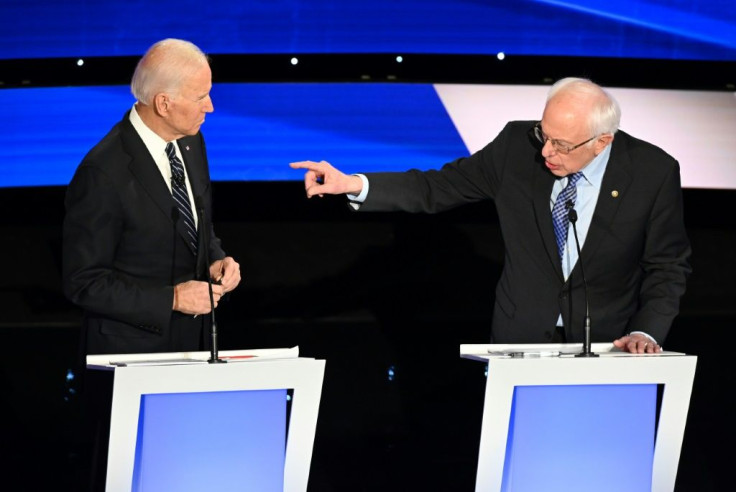As Iowa Primary Nears, Sanders And Biden Are Tied Nationally

KEY POINTS
- Reuters/Ipsos poll places Sanders at 20% support nationally, up 2 points
- Biden is nearly tied with 19 percent
- Sanders' numbers suggest allegations of sexism have not harmed him
As 2019 was wrapping up, it was looking as though former Vice President Joe Biden, although losing ground, was managing to hold on firmly as front runner for the Democratic nomination. It didn’t take long for Biden’s lead to shrink in the new year as he looks to be slipping into second place in national polling.
A new survey conducted by Reuters/Ipsos shows that among registered Democrats and independents, Sen. Bernie Sanders (I-Vt.) is narrowly edging out Biden, 20 percent to 19 percent. While support has remained fairly steady for most of the candidates, Sanders saw his grow by two points. Currently, Sen. Elizabeth Warren (D-Mass.) is holding on to third with 12 percent support. It should be noted that there is a margin of error of roughly 2.5 points.
Despite the direction of the wind seeming to be blowing in favor of both Biden and Warren in the fall, Sanders’ campaign has enjoyed a major resurgence in the last few months. For the fourth quarter of 2019, Sanders announced pulling in over $34 million in donations, vastly outpacing his peers. By comparison, Biden raised nearly $23 million, the second largest amount among Democratic candidates.
The new poll is especially interesting coming on the heels of an apparent feud between Sanders and Warren, after the latter accused the Vermont senator of having remarked that a woman is incapable of winning the presidency. Despite the matter coming to a head in several tense moments during the Democratic primary debate last week, it appears the allegations of sexism against Sanders are not harming him, even among women (15 percent support Sanders while 11 percent back Warren).
Swing voters will be the major prize, with one-third voters telling Reuters they were undecided, while two-thirds of those who have decided said they could be pursueded into shifting their support to another candidate.
With the first round of primary voting set to begin on Feb. 3 in Iowa, the focus is less on national polling and more on how candidates are performing in the first group of states to primary – often considered pace-setters for the rest of the states. According to aggregate polling website RealClearPolitics, Biden and Sanders are currently jostling for the top spot in Iowa, while Sanders is out front in New Hampshire and California.
© Copyright IBTimes 2024. All rights reserved.






















